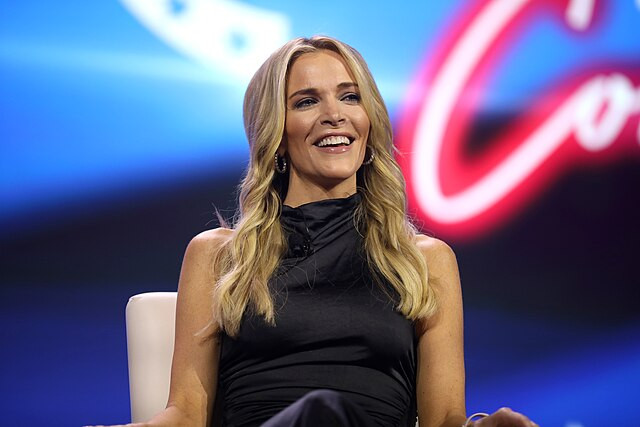Megyn Kelly, a prominent media figure, recently voiced her concerns over what she perceives as the increasingly blurred lines between political figures and members of the media. During an episode of her podcast, "The Megyn Kelly Show," she specifically targeted the private dinner hosted by Vice President Kamala Harris and her husband, Doug Emhoff, for Joe Scarborough, host of MSNBC's "Morning Joe," and his wife, Mika Brzezinski. Kelly described her reaction to the event with vivid disapproval, stating, "I just threw up a little in my mouth. It's so gross how incestuous this is."
Kelly's critique didn't stop at this singular event. She broadened her disapproval to encompass the general trend of close relationships between media personalities and those in power, regardless of their political affiliation. "And yes, I say the same thing about the other side," she clarified, ensuring her audience understood her stance was not politically motivated. Her commentary reflects a growing concern within journalistic circles about the need to maintain an objective distance from the subjects of their reporting.
Echoing the principles of journalistic integrity, Kelly articulated the importance of a metaphorical arm's length relationship between the press and political figures. "Trust me, I would never go have a private dinner with the sitting Vice President and her husband because you need to stay like this with them," she elaborated, emphasizing the necessity of a clear boundary to preserve the credibility and impartiality of the media.
The former Fox News host also highlighted similar issues within conservative media, pointing to Sean Hannity's relationship with former President Donald Trump as a parallel example. "Hannity [went] on stage with Trump. And he's described Trump as his best friend," Kelly recounted, underscoring her concern with such interactions across the political spectrum. She stressed that her critique was not limited by partisanship, "I'm not partisan about this," she asserted, advocating for a universal standard of professional detachment in the media industry.
Kelly's observations come amidst broader discussions on the role of the media in a democratic society, particularly concerning how personal relationships with political figures might influence media coverage and, consequently, public perception. Her comments shed light on the potential conflicts of interest that may arise when media figures become too closely aligned with the subjects they are meant to cover objectively.
This debate is further complicated by reports, such as one from Axios, which detailed President Joe Biden's frequent interactions with Scarborough, suggesting a level of access and familiarity that could be perceived as at odds with journalistic independence. Scarborough's favorable coverage of Biden, as noted by Kelly, raises questions about the potential impact of such relationships on the media's role as a watchdog and its responsibility to the public.
As the media landscape continues to evolve, the conversation initiated by figures like Megyn Kelly serves as a reminder of the foundational principles of journalism and the ongoing need to reevaluate and reaffirm its commitment to impartiality and accountability. The discourse around the intersections of media, politics, and public trust remains as relevant as ever, urging both media professionals and consumers to reflect on the values that underpin a free and independent press.






